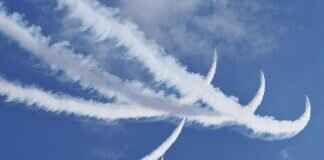As the world grapples with a myriad of public health threats, the United States finds itself at a critical juncture in preparedness. From the resurgence of diseases like whooping cough to the looming specter of Avian flu, Norovirus, Human metapneumovirus, Oropouche, and the ongoing battle against Covid-19, the stakes have never been higher.
On January 10th, a panel of esteemed experts gathered at an Ethnic Media Services briefing to delve into the intricacies of these looming threats and assess the nation’s readiness to combat potential outbreaks. Among the key concerns raised were the alarming trends of vaccine disinformation, misinformation, and the overarching impact of climate change on the spread of infectious diseases.
Climate Change & Influenza: A Ticking Time Bomb
Dr. Nahid Bhadelia, the founding director of the Center on Emerging Infectious Diseases at Boston University, sounded the alarm on the intersection of climate change and infectious diseases. Expressing profound concern over the secondary impacts of climate change on medical supplies and antibiotic use, Dr. Bhadelia emphasized the unpredictable nature of disease spread in a rapidly warming world.
Dr. Peter Chin Hong, an infectious diseases specialist at the University of California, San Francisco, echoed these sentiments, singling out influenza as a major cause for worry. Highlighting the looming threat of both bird flu and human influenza, Dr. Chin Hong underscored the urgent need for vaccination, particularly among high-risk groups. He warned against the dangers posed by anti-science movements that could undermine the efficacy of existing tools in disease prevention.
Vaccine Hesitancy & the Erosion of Herd Immunity
Dr. Benjamin Newman, a distinguished Professor of Biology at Texas A&M University, raised the red flag on declining vaccination rates as a critical threat. He cautioned against the potential erosion of herd immunity and the subsequent resurgence of diseases like measles, should vaccination rates continue to plummet. Dr. Newman’s concerns were mirrored by Dr. William Schaffner, a Professor of Medicine at Vanderbilt University School of Medicine, who highlighted the current surge in influenza, Covid-19, and RSV cases across the country.
Dr. Schaffner emphasized the role of indoor gatherings and holiday travel in accelerating the spread of respiratory viruses, pointing to schools as key breeding grounds for influenza transmission. The delicate balance of herd immunity, he warned, could be shattered if vaccination rates continued to decline, leaving communities vulnerable to preventable diseases.
Global Health InSecurity: America’s Tenuous Position
Dr. Bhadelia, drawing on her experience serving on the White House COVID Response Team, issued a stark warning about the risks of geopolitical isolation in the face of global health threats. As the US prepares to withdraw from the World Health Organization, Dr. Bhadelia stressed the importance of maintaining global health security partnerships to effectively combat infectious diseases.
Highlighting the pivotal role the US has played in bolstering global health security infrastructure, Dr. Bhadelia underscored the need for continued collaboration with international partners to detect and respond to emerging threats. Withdrawing from these partnerships, she cautioned, could leave the US woefully unprepared to tackle future pandemics, jeopardizing both national security and global standing.
As the country stands at a crossroads in public health preparedness, the need for proactive measures and sustained international cooperation has never been more pressing. The fate of America’s health security hinges on its ability to confront these challenges head-on, with a unified front and a steadfast commitment to global solidarity.













